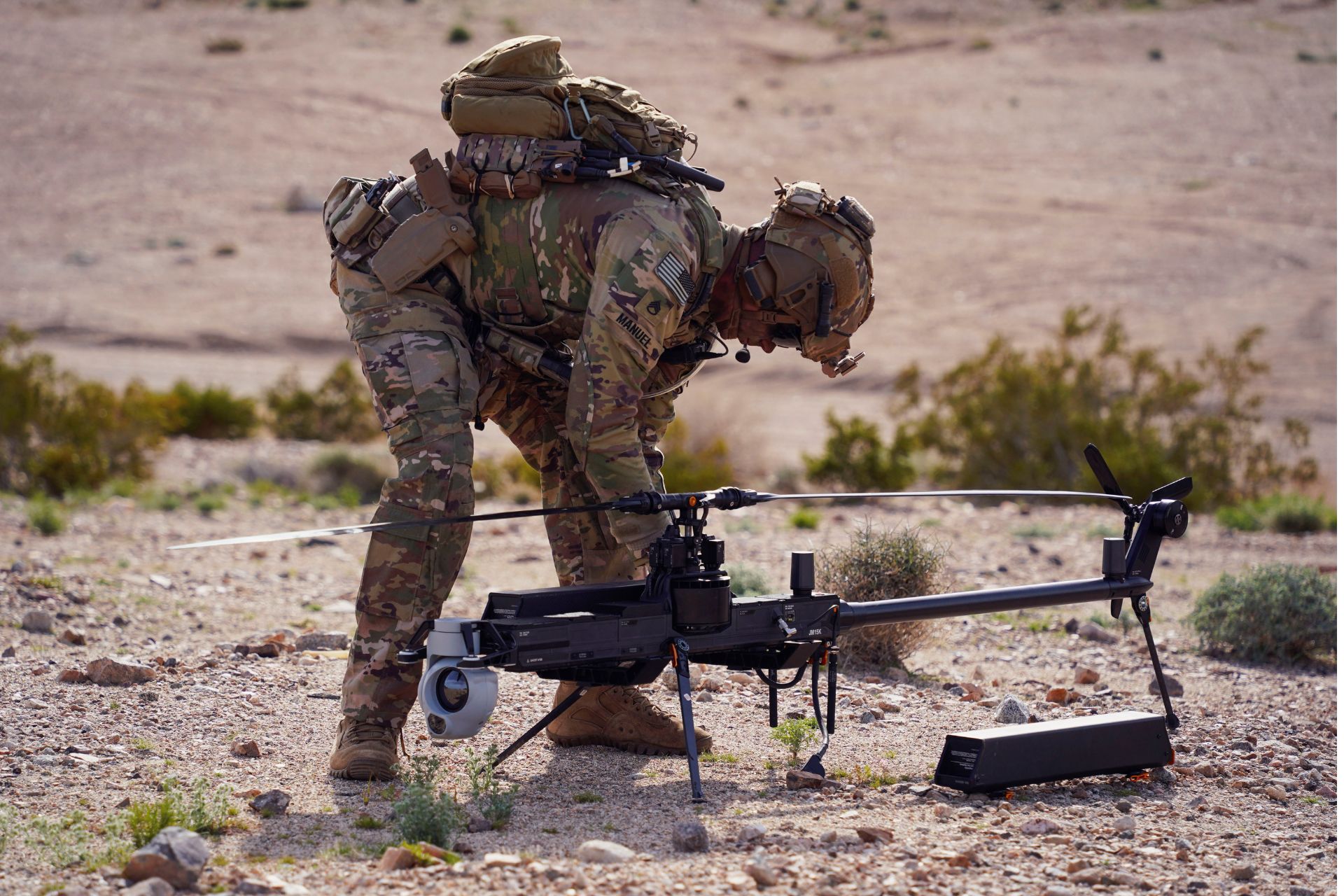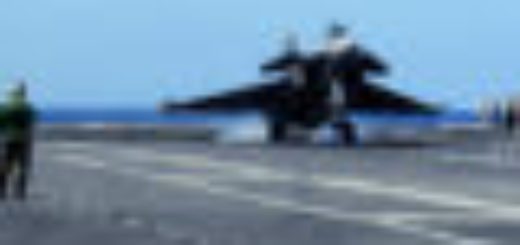Anduril Industries Secures Contract to Develop Counter-Drone System for US Marine Corps’ MADIS

{loadposition bannertop}
{loadposition sidebarpub}
Anduril Industries has been awarded a $200 million, five-year contract by the U.S. Marine Corps to develop and deliver a Counter Unmanned Aerial System (CUAS) for the Marine Air Defense Integrated System (MADIS). This Indefinite Delivery/Indefinite Quantity (IDIQ) contract represents a pivotal step in enhancing advanced counter-drone capabilities to protect the Marine Air Ground Task Force (MAGTF) from evolving aerial threats.
Follow Army Recognition on Google News at this link
Among these are the Altius, a drone optimized for long-range reconnaissance and persistent surveillance in complex environments, and the Ghost, a tactical drone designed for surveillance and precision strike missions in support of ground operations (Picture source: US DoD)
The system, known as the MADIS Counter UAS Engagement System (CES), is part of an upgrade initiative aimed at improving the primary counter-drone system of the Marines. The program seeks to bolster operational effectiveness by equipping deployed forces with the latest technological solutions to address increasingly sophisticated aerial threats.
A key component of the CES is the Anvil, an autonomous kinetic interceptor specifically designed to counter Group 1 and Group 2 drones. Using advanced onboard computing and sensors, it ensures precise targeting and reliable engagement, even in dynamic environments. The CES is also powered by Lattice, Anduril’s advanced open command-and-control operating system. Lattice integrates sensor fusion, computer vision, edge computing, decision-support tools, and artificial intelligence, facilitating swift decision-making in high-tempo threat scenarios.
The modular, open-architecture design of the MADIS CES allows for continuous integration of new capabilities, ensuring the system remains effective against emerging threats. Its “software-first” philosophy enables rapid updates to maintain its operational edge as new technologies are developed.
Chris Brose, Chief Strategy Officer at Anduril Industries, highlighted the importance of integrating artificial intelligence and autonomy into the CES to deliver a scalable solution for countering evolving drone threats. This partnership reinforces Anduril’s ongoing collaboration with the Marine Corps to address pressing defense needs.
The CES provides significant enhancements to MADIS, enabling it to neutralize a wide range of aerial threats, including drones as well as fixed- and rotary-wing aircraft. Additionally, the system supports continuous Engineering Change Proposals (ECPs), allowing for rapid incorporation of new functionalities to ensure a technological advantage over adversaries.
Anduril has already demonstrated expertise in delivering CUAS solutions to the Marine Corps. Its Sentry autonomous towers, deployed at multiple Marine Corps installations across the United States, detect, track, identify, and counter Group 1 and Group 2 drone threats. Insights from these fixed-site deployments informed the development of the MADIS CES, which is designed to support Marines operating in forward-deployed environments.
Pat Morris, Vice President of Air Defense at Anduril, reiterated the company’s commitment to providing solutions that address critical threats faced by military personnel. This collaboration represents an opportunity to develop innovative technologies tailored to the operational needs of the armed forces.
Beyond MADIS, Anduril maintains several strategic contracts with the U.S. military for advanced autonomous systems. Among these are the Altius, a drone optimized for long-range reconnaissance and persistent surveillance in complex environments, and the Ghost, a tactical drone designed for surveillance and precision strike missions in support of ground operations. These systems, equipped with cutting-edge artificial intelligence and sensor technologies, enhance the military’s ability to operate effectively in modern, contested environments.

{loadposition bannertop}
{loadposition sidebarpub}
Anduril Industries has been awarded a $200 million, five-year contract by the U.S. Marine Corps to develop and deliver a Counter Unmanned Aerial System (CUAS) for the Marine Air Defense Integrated System (MADIS). This Indefinite Delivery/Indefinite Quantity (IDIQ) contract represents a pivotal step in enhancing advanced counter-drone capabilities to protect the Marine Air Ground Task Force (MAGTF) from evolving aerial threats.
Among these are the Altius, a drone optimized for long-range reconnaissance and persistent surveillance in complex environments, and the Ghost, a tactical drone designed for surveillance and precision strike missions in support of ground operations (Picture source: US DoD)
The system, known as the MADIS Counter UAS Engagement System (CES), is part of an upgrade initiative aimed at improving the primary counter-drone system of the Marines. The program seeks to bolster operational effectiveness by equipping deployed forces with the latest technological solutions to address increasingly sophisticated aerial threats.
A key component of the CES is the Anvil, an autonomous kinetic interceptor specifically designed to counter Group 1 and Group 2 drones. Using advanced onboard computing and sensors, it ensures precise targeting and reliable engagement, even in dynamic environments. The CES is also powered by Lattice, Anduril’s advanced open command-and-control operating system. Lattice integrates sensor fusion, computer vision, edge computing, decision-support tools, and artificial intelligence, facilitating swift decision-making in high-tempo threat scenarios.
The modular, open-architecture design of the MADIS CES allows for continuous integration of new capabilities, ensuring the system remains effective against emerging threats. Its “software-first” philosophy enables rapid updates to maintain its operational edge as new technologies are developed.
Chris Brose, Chief Strategy Officer at Anduril Industries, highlighted the importance of integrating artificial intelligence and autonomy into the CES to deliver a scalable solution for countering evolving drone threats. This partnership reinforces Anduril’s ongoing collaboration with the Marine Corps to address pressing defense needs.
The CES provides significant enhancements to MADIS, enabling it to neutralize a wide range of aerial threats, including drones as well as fixed- and rotary-wing aircraft. Additionally, the system supports continuous Engineering Change Proposals (ECPs), allowing for rapid incorporation of new functionalities to ensure a technological advantage over adversaries.
Anduril has already demonstrated expertise in delivering CUAS solutions to the Marine Corps. Its Sentry autonomous towers, deployed at multiple Marine Corps installations across the United States, detect, track, identify, and counter Group 1 and Group 2 drone threats. Insights from these fixed-site deployments informed the development of the MADIS CES, which is designed to support Marines operating in forward-deployed environments.
Pat Morris, Vice President of Air Defense at Anduril, reiterated the company’s commitment to providing solutions that address critical threats faced by military personnel. This collaboration represents an opportunity to develop innovative technologies tailored to the operational needs of the armed forces.
Beyond MADIS, Anduril maintains several strategic contracts with the U.S. military for advanced autonomous systems. Among these are the Altius, a drone optimized for long-range reconnaissance and persistent surveillance in complex environments, and the Ghost, a tactical drone designed for surveillance and precision strike missions in support of ground operations. These systems, equipped with cutting-edge artificial intelligence and sensor technologies, enhance the military’s ability to operate effectively in modern, contested environments.






